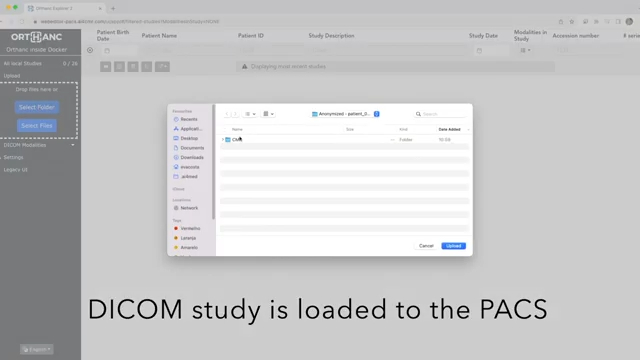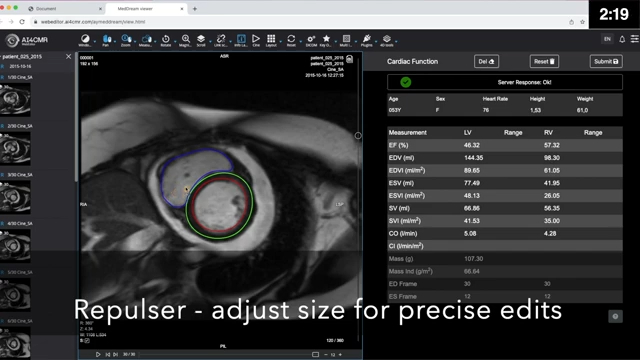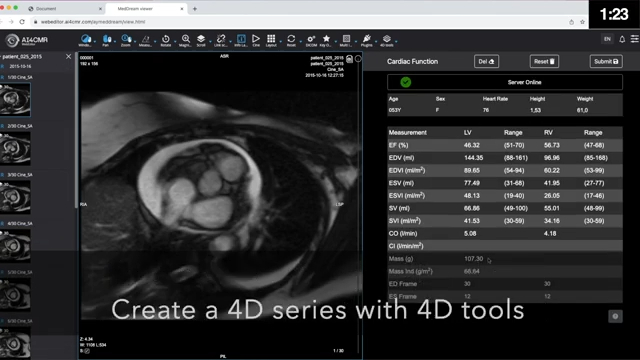Discover AI4CMR
“AI for better workflow, better outcomes in medical imaging answering unmet medical needs”
The AI4CMR solution is ”software as a medical device” (SaMD) that aims to automate the interpretation of cardiac magnetic resonance imaging (CMR) using artificial intelligence.
The AI4CMR software (SaMD) performs a fully automatic cardiac segmentation allowing instant quantification of ventricular volumes, myocardial mass, and ejection fraction. Besides, it automatically identifies cases with normal left ventricle wall motion (regional contractility).
This safety net solution combined saves significant time and allows the physician to dedicate more time to complex or abnormal cases.

Available soon

How it works
CMR Reporting is Time Consuming and Subjective
CMR reporting is based on two pillars:
-Fully automatic cardiac segmentation for volume quantification
(zero human interaction)
-Visual interpretation of different sequences.
Significantly decreases CMR reporting time by more than 50%, allowing more reports.
Fully automatic segmentation
Fully automatic and reliable segmentation using state of the art algorithms, with high overlap with experts manual segmentation (Dice coefficient >= 0.8).
Fully automatic quantification
Fully automatic left and right ventricles volumes quantification: End-diastolic volume (EDV); End-systolic volume (ESV); Stroke volume (SV); Ejection fraction (EF); Myocardial mass (LVM); Cardiac output (CO); Respective BSA indexed volumes. Excellent reliability in ventricular volumes quantification between AI4CMR and experts.
Accuracy
Automatic identification of cases with normal vs suspicious wall motion (100% Sensitivity, 77% Accuracy, 100% Negative Predictive Value, 70% Positive Predictive Value and 50% Specificity).
Speed
Significant reduction of the cine reporting time: around 14 times decrease on the segmentation time (average response time of 86 seconds) when compared with manual segmentation (20 minutes).
MRI Scanner Agnostic
Compatible with different MRI manufacturers: Siemens; GE Healthcare Systems; Phillips Medical Systems.
Cloud
Cloud-based service: high availability, scalability and reliability.
Interoperability
Easy communication with other devices via a standard protocol.
Better Clinical Workflow
Improves clinical workflow when integrated with PACS or VNAs Viewers (no need for a dedicated viewer software).


